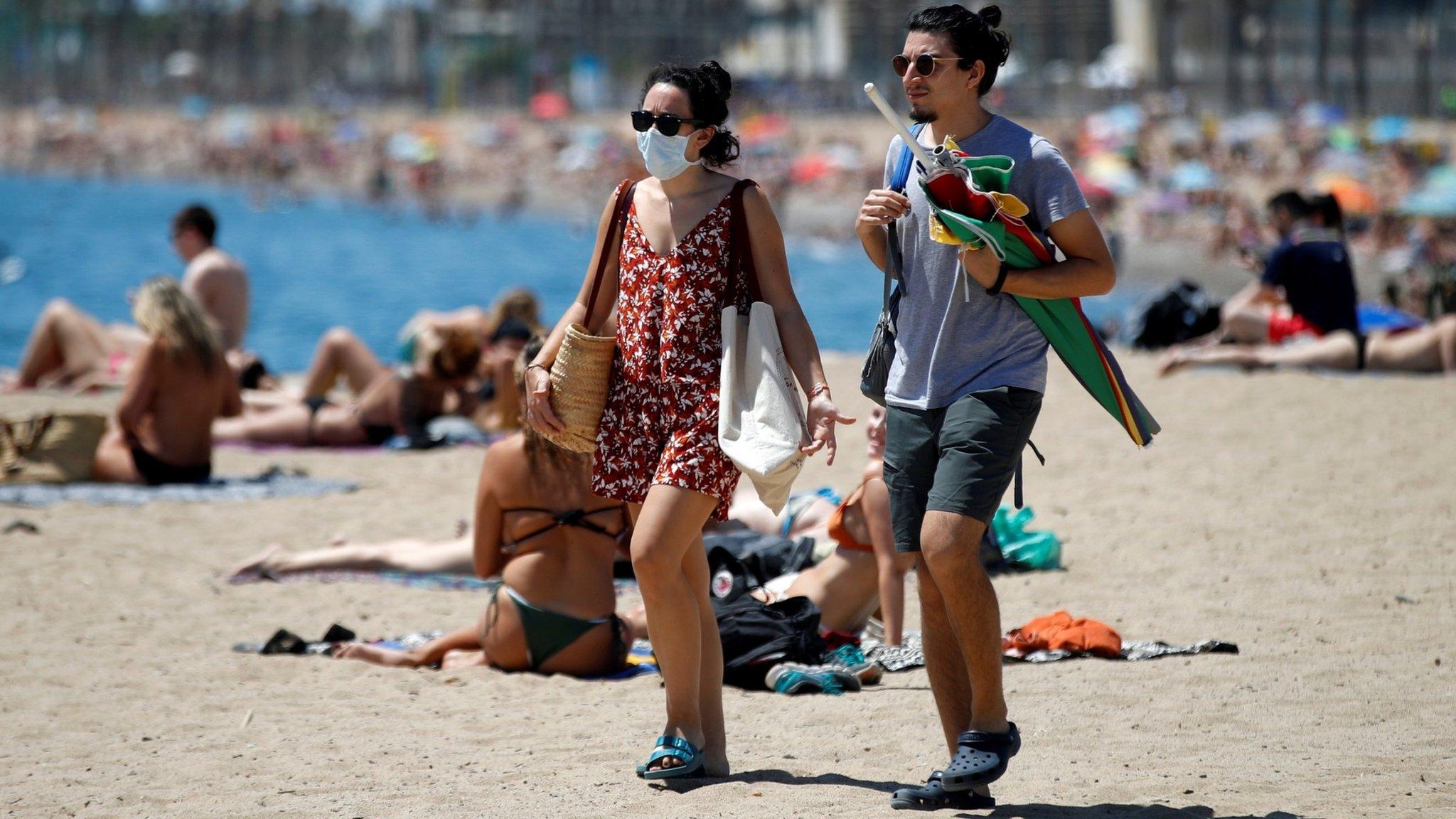Coronavirus: Spain quarantine rule 'disappointing but needed'
- Published
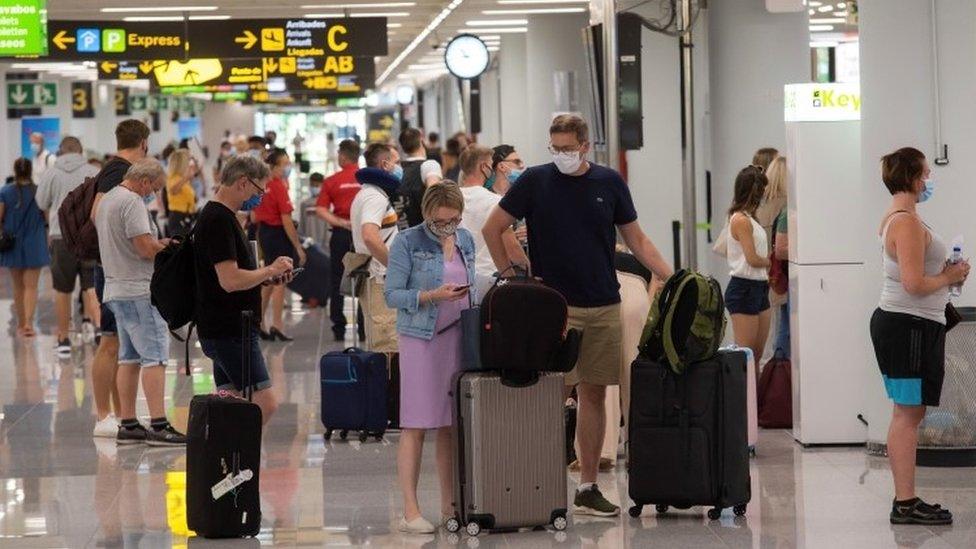
Tourists arrived at Spanish airports to learn they will need to quarantine for two weeks on their return to the UK
The reintroduction of quarantine for travellers to Scotland from Spain will cause disappointment but is necessary, the justice secretary has said.
Scotland lifted the 14-day rule last week, but brought it back on Saturday along with the rest of the UK due to a rise in coronavirus cases in Spain.
Humza Yousaf said the decision had been taken to reduce the risk of the spread of the virus.
More than 900 new cases of the virus were reported in Spain on Friday.
Spanish officials have also warned a second wave could be imminent as major cities have seen cases surge.
The Scottish Passenger Agents' Association (SPAA) said it was right public health was the number one priority but has asked why the decision to re-impose the self isolation rule was taken late on Saturday.
SPAA president Joanne Dooey told BBC Scotland the weekend was the busiest time for flights to Spain and some travel agents had worked through the night to try and get information to their customers.
The Foreign Office is advising against all but essential travel to mainland Spain. Quarantine measures apply to those returning from mainland Spain, the Canary Islands and the Balearic Islands, such as Majorca and Ibiza.
The UK's biggest tour operator, Tui, has cancelled all mainland Spanish holidays until 9 August.
Among those affected by the new rules is UK Transport Secretary Grant Shapps, who began his holiday in Spain on Saturday. He is expected to continue his trip as planned and isolate in line with guidance on his return.
'Very worrying'
The Scottish government had previously held off relaxing the 14-day quarantine rule before adding Spain to its list of exempt countries last week.
A spokeswoman said First Minister Nicola Sturgeon had advised that people should still take a "cautious approach" to foreign travel.
The spokeswoman said: "We have been clear that we may require to remove a country from the list of places exempt from quarantine requirements should the virus show a resurgence."
Allow X content?
This article contains content provided by X. We ask for your permission before anything is loaded, as they may be using cookies and other technologies. You may want to read X’s cookie policy, external and privacy policy, external before accepting. To view this content choose ‘accept and continue’.

Mr Yousaf said the decision to exempt Spain was taken when the data showed there was an improvement in the spread of the virus.
But he told BBC Scotland the data analysed by Public Health England for the later part of last week had shown a "very worrying" picture of a "rapid rise" in cases in Spain with 15 of the country's 19 regions affected.
He said Scotland, England, Northern Ireland and Wales had made a collective decision on Saturday to no longer exempt Spain from quarantine measures.
'Couldn't risk delaying'
Mr Yousaf said he understood there would be disappointment and frustration for travellers, tourism and aviation industries.
He said: "We came to a decision, yes relatively late last night, but we had to come to that decision immediately. We couldn't risk delaying any later because of the number of flights and travellers from Spain.
"We do make the decisions with public health as a priority."
Mr Yousaf said people who do travel abroad for holidays amid a pandemic had to accept there was a risk of possible disruption to their plans.
He has asked the UK government to publish the data behind the decision.
Foreign Secretary Dominic Raab said no worker following quarantine guidance should be penalised by employers, including by being put onto sick pay.
He said that if someone was following the law in relation to quarantine and self-isolating, "they can't have penalties taken against them".
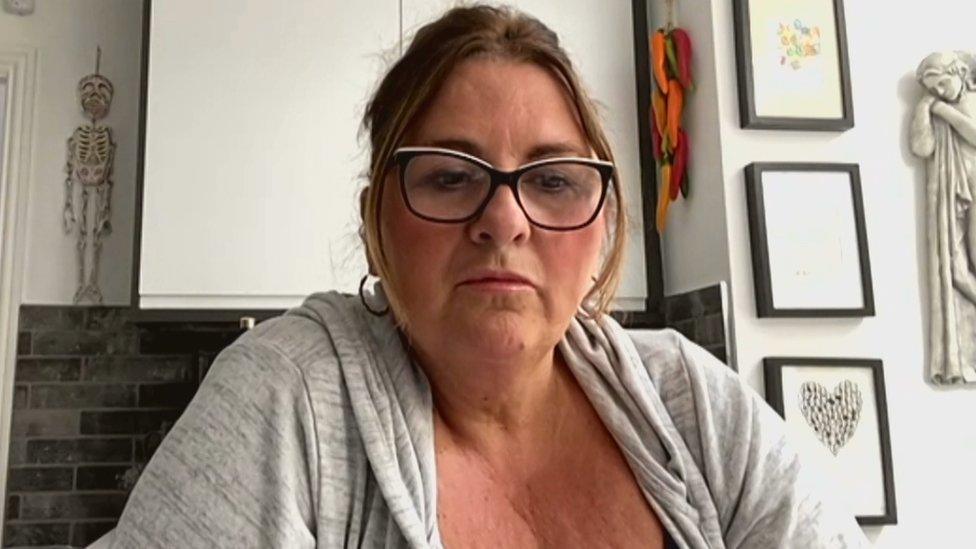
Joanne Dooey, of the SPAA, said there was confusion over the timing of the reintroduction of the measures
Ms Dooey, of the SPAA, said the organisation was questioning why quarantine rules were reintroduced at short notice.
She said: "We understand people's health is the number one priority, but I think the biggest confusion here is why we got a four-hour window on a Saturday evening to say that quarantine was going into place at midnight.
"This must have been discussed previously. Why wasn't it brought into place on Friday? Saturday is the busiest time for people flying out to Spain."
'Bit of a shock'
Scots holidaymaker Arran Hannah arrived in Tenerife from Edinburgh Airport with her family on Friday.
She found out about the return of quarantine in Scotland from a Tweet posted by First Minister Nicola Sturgeon.
Coronavirus: Scots journalist on holiday reflects on Spanish quarantine
She said: "It was a bit of a shock because it had just been lifted. We will just have to make the best of it. We are out here now and there is not really anything we can do about it."
Ms Hannah, a freelance journalist who has worked for the BBC, said she and her family felt safe in Tenerife and far away from Spain's virus outbreaks.
Mark Easton, who was flying with his family from Edinburgh Airport on Sunday, said he was looking forward to his holiday after having to rearrange the trip once already.
He said: "It's been a long time coming. We had to cancel because of the lockdown so it's just great to get away."
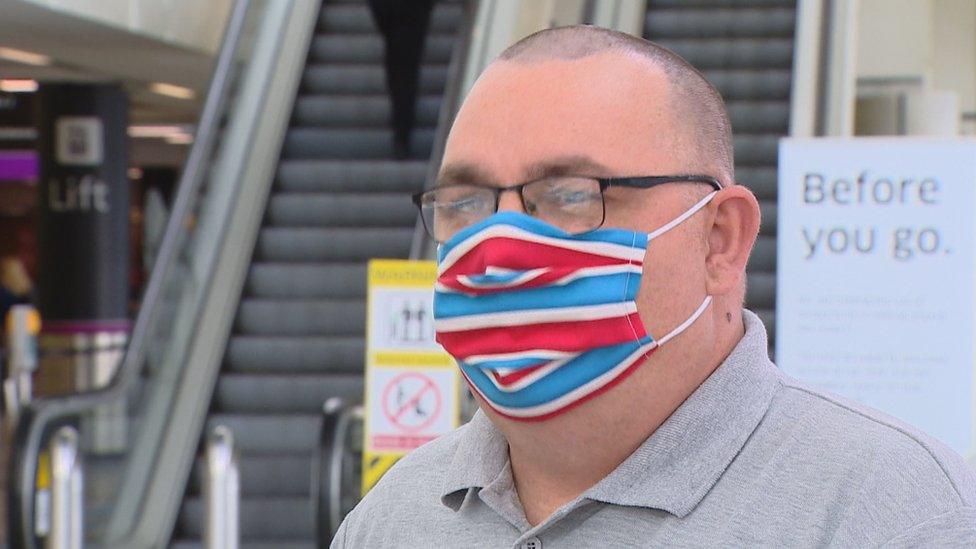
Mark Easton was flying from Edinburgh for his family holiday on Sunday
Scottish Liberal Democrats leader Willie Rennie said there were warnings in Spain of a rise in cases at the time the Scottish government decided to relax restrictions last week.
He has called on the government to publish the science supporting the decision to lift the quarantine on Thursday and re-impose it on Saturday.
He said: "This is now a shambolic situation and there is a big question as to how Scottish ministers have made such poor quality decisions.
"If it was not safe to lift the quarantine measures three weeks ago how had it been judged safe to do so earlier this week?"

What's happening in Spain?
Spanish officials have warned a second wave of coronavirus could be imminent as major cities have seen cases surge.
Spain has so far seen more than 28,000 coronavirus deaths. On Thursday, it saw the biggest daily increase in infections since its lockdown ended.
Catalonia has become the latest region to crack down on nightlife. The wealthy north-east region, which is home to Barcelona, ordered all nightclubs to close for two weeks and put a midnight curfew on bars in the greater Barcelona area.
The BBC's Guy Hedgecoe in Madrid says contagion among young people is a particular worry, as they have been gathering in large numbers in cities at night.
France has warned its citizens not to travel to Catalonia while Norway has said it will start quarantining people arriving from Spain.

People currently on holiday in Spain have been advised by the Department of Transport to follow the local rules, return home as normal, and check the Foreign Office's travel advice website, external for further information.
It is unlikely that any travel insurance will be valid where the Foreign Office advice states UK residents should not travel, according to BBC personal finance reporter Kevin Peachey.
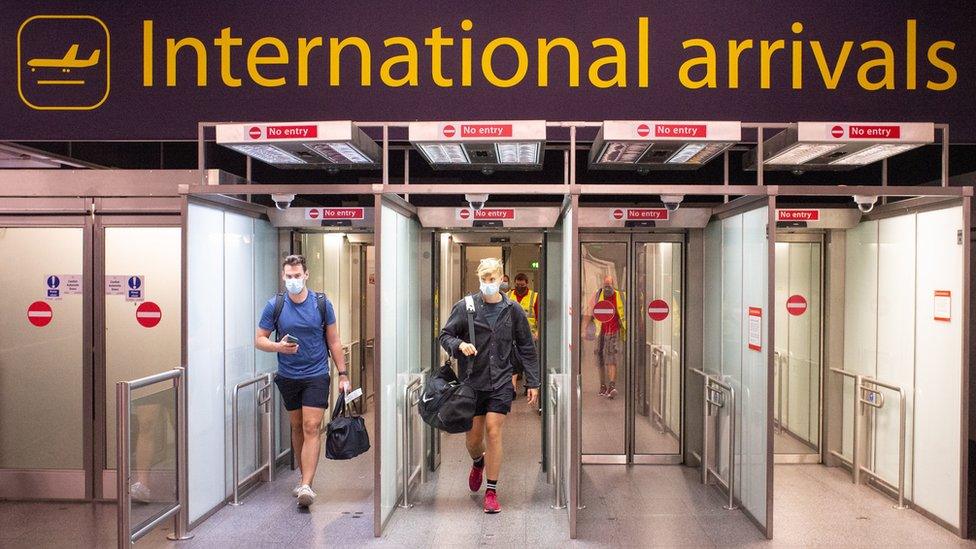
The quarantine measures for Spain were reintroduced on Saturday
Consumer watchdog Which? said many holidaymakers would be "deeply angry" the UK government had not take the decision earlier.
Rory Boland, editor of Which? Travel, said: "Many would not have travelled if they had known they'd face 14 days of quarantine on their return.
"For those with future bookings to Spain, many tour operators are now likely to cancel holidays.
"People may want to support their holiday company by accepting a refund credit note or rebooking for a later date, but it's important operators make clear any drawbacks.
"Customers have the legal right to a cash refund if their package holiday is cancelled."

LOCKDOWN EASING: What changes and when in Scotland?
LOOK-UP TOOL: How many cases in your area?
THE R NUMBER: What it means and why it matters

- Published26 July 2020
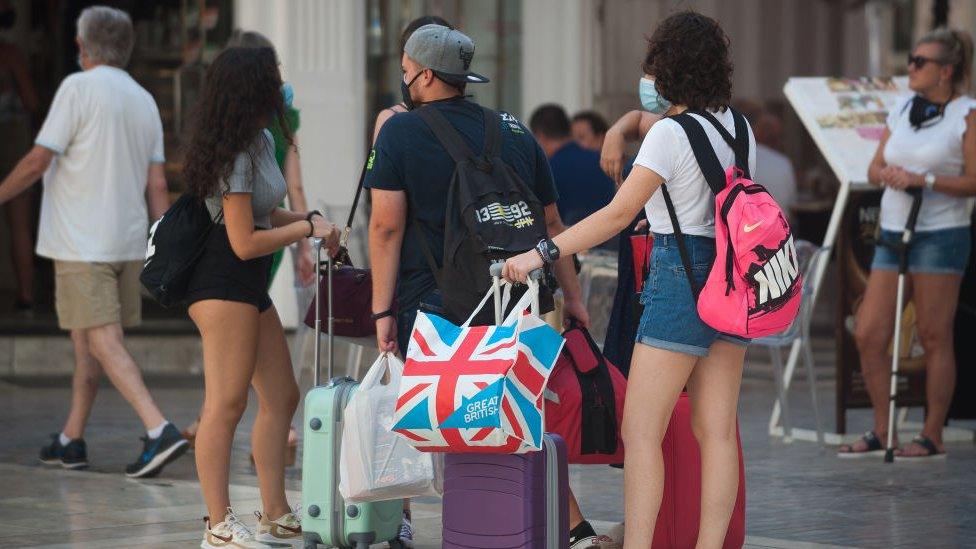
- Published11 February 2022

- Published24 December 2020
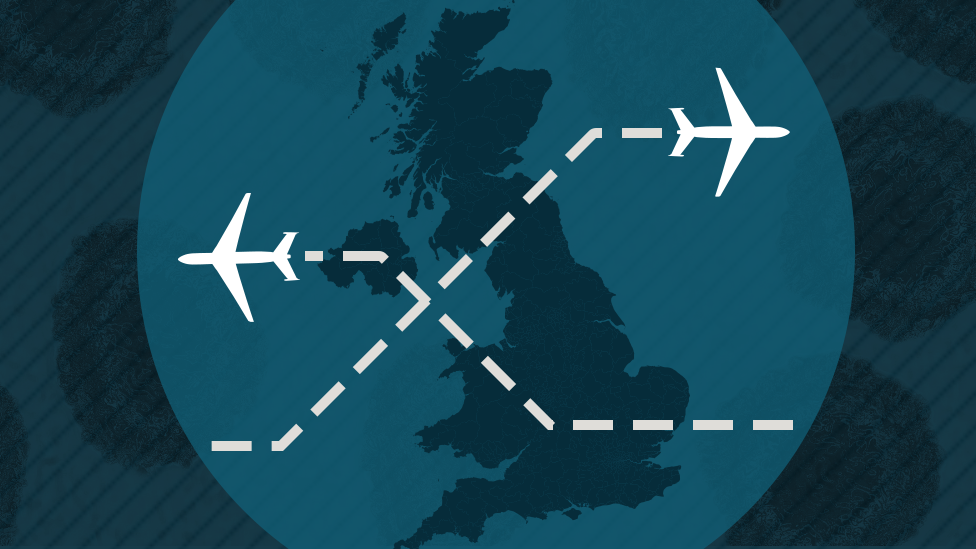
- Published26 July 2020
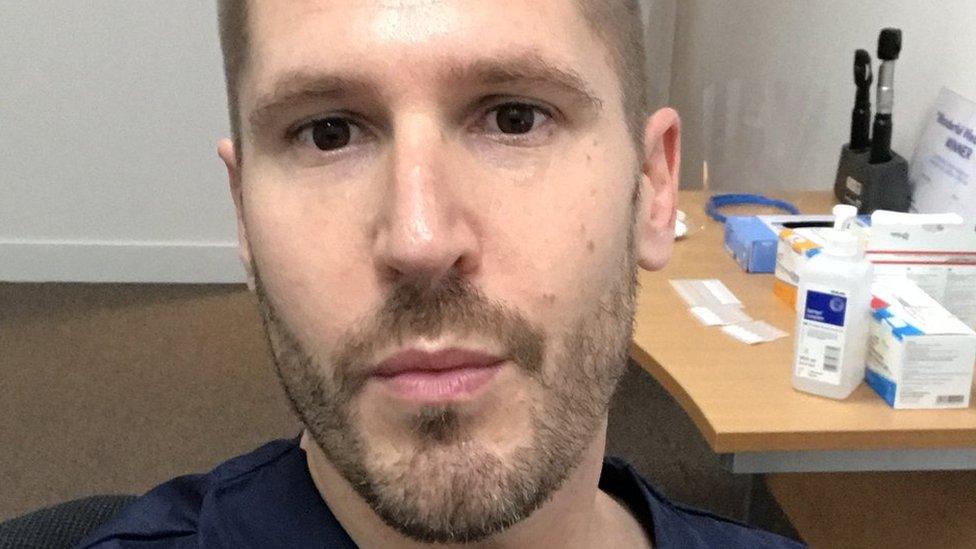
- Published26 July 2020
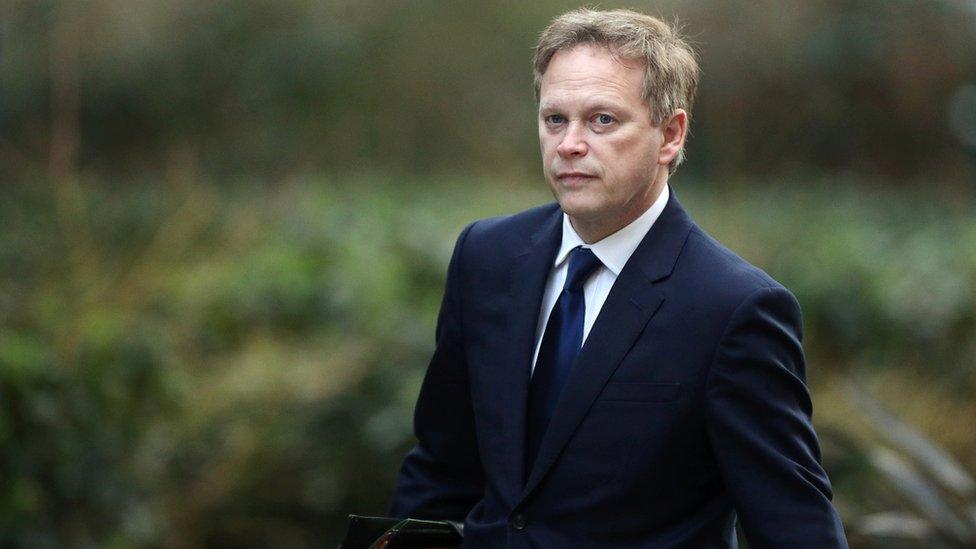
- Published25 July 2020
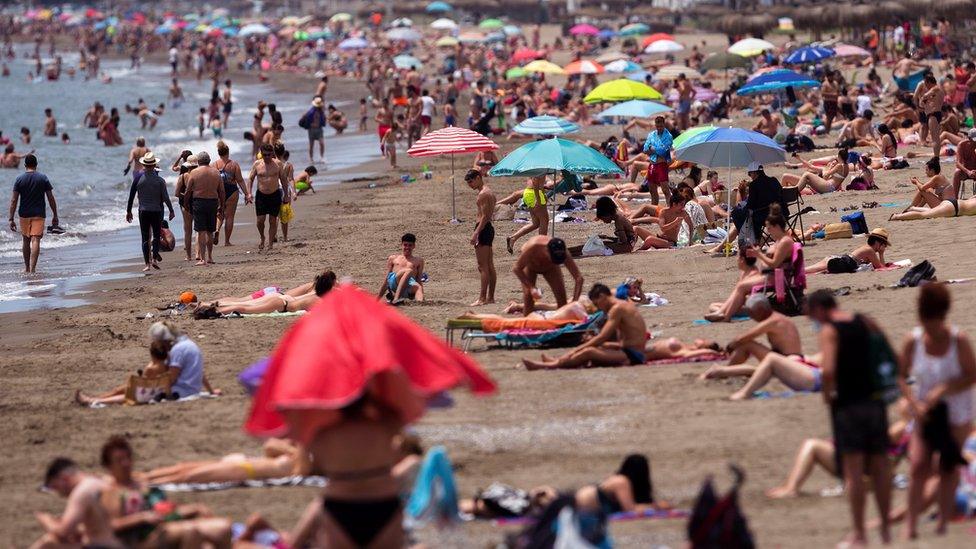
- Published20 July 2020
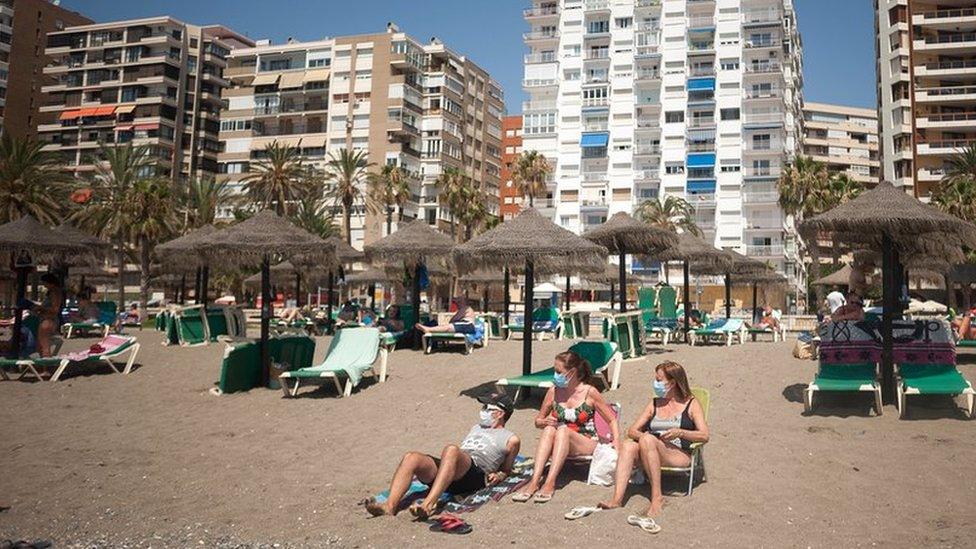
- Published8 July 2020
